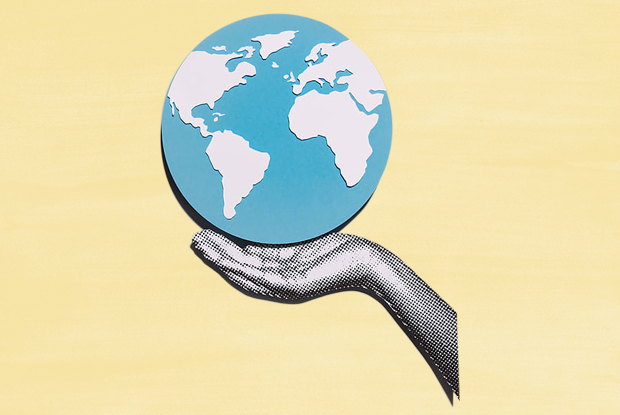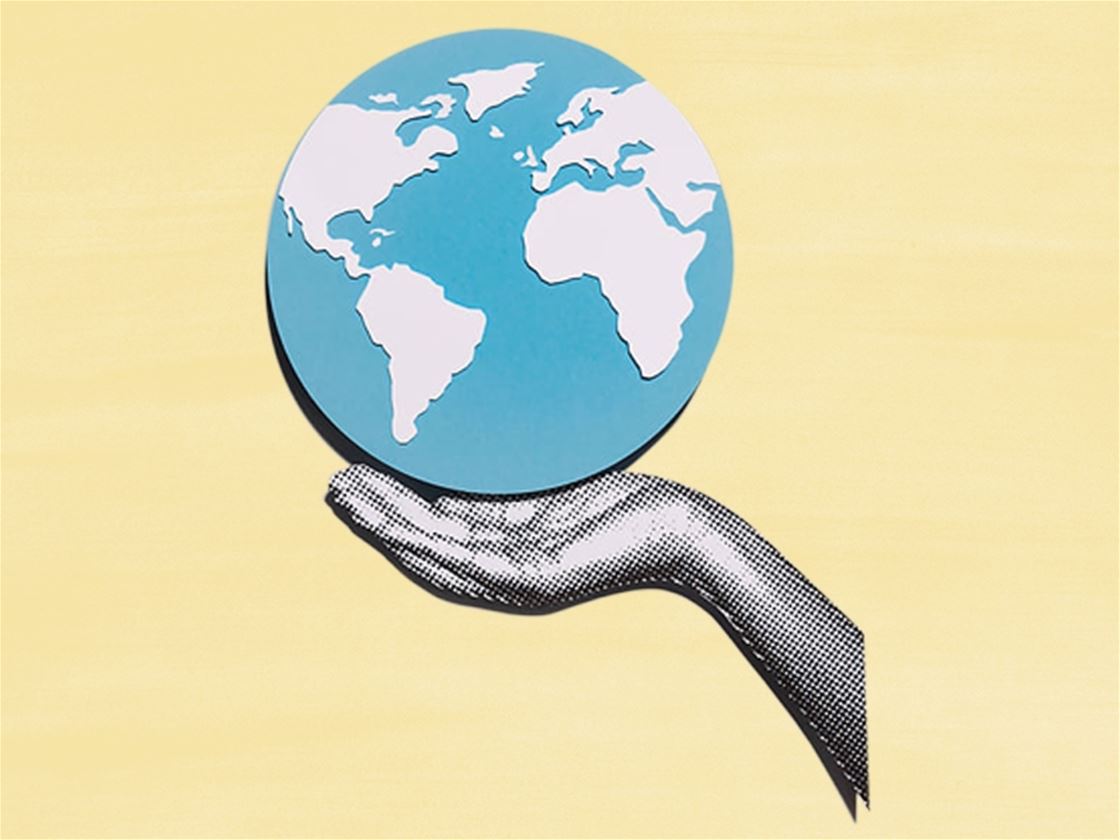how to deal with your climate change anxiety
What can you do when the chips are down and your world is sinking? We asked a couple of experts how to overcome those bad feels and channel them into something good.

This article is brought to you by ‘school of frankie’, our super-duper educational guide to nailing life’s tricky parts. Together with Bank Australia, we want to help you do all the “adult” stuff you wish you’d learned in school.
Confronted with bad news about deforestation, coral-bleaching and other symptoms of climate change, it’s not surprising that a lot of folks are feeling existentially queasy. No one wants to think about our future planet as some kind of irradiated plastic wasteland, after all.
This queasiness tends to manifest as a mixed bag of emotions: guilt, panic, hopelessness and fear. Psychologists call it ‘climate distress’, and it’s a very real phenomenon. The Australian Psychological Society has even released a guide to help people overcome climate-related anxiety.
So, what can you do when the chips are down and your world is sinking? How do we deal with existential fear? What makes climate anxiety different from regular, oh-god-my-assignment-is-due-tomorrow anxiety? We asked a couple of experts how to overcome those bad feels, and how to channel them into something good.
TAKE COLLECTIVE ACTION The key word here is ‘collective’. Psychologist Nikki Hare, who specialises in climate distress, says because climate change is everyone’s problem, communal solutions have the biggest positive mental effect. “When you have personal anxiety, the difficulty is loneliness,” Dr. Harre says. “You’re caught in this world. You’re embarrassed about it. It’s all on you. But with climate change, the trick is to get involved – join a group and start to take action.” Connect with a local environmental organisation, engage in a movement like #climatestrike, or enlist your workmates to collectively relocate your money and super into a more ethical bank or super fund. By working with others, Dr. Harre says, climate change morphs from shadowy existential dread into an (admittedly complicated) logistical problem. And if there’s a problem, there’s an answer. You just have to get stuck in.
GET REALISTIC Experts say there’s a mental tendency to lean into bad news about climate change. We actively seek out disaster stories and ignore all the good work that’s going on around the world. “If all you’re watching is the mainstream narrative, it’s easy to become despondent,” says Damon Gameau, director of climate documentary 2040. “But when you look in the shadows, you find this movement of regenerative agriculture and decentralised energy. People just rolling up their sleeves and getting on with stuff. These projects are going on all around us.” Damon says the trick is to research widely and get realistic: yes, climate change is a big issue, but it’s not like everybody is twiddling their thumbs, happily watching the mercury rise. Try to hunt for climate success stories and, if possible, get involved yourself.
IMAGINE A BETTER WORLD Hope and positivity aren’t just for freewheeling hippies. It’s easy to be cynical, but there’s hard psychological evidence that imagining a future where climate change has been solved will actually help make that future. “Young people are great at this, because they’re not attached to what they’ve got,” Dr. Harre says. “Human beings are imitators. We latch onto stories. It’s important to get people thinking of a future where we’ve dealt with climate change – if we can imagine what that future looks like, we can start to behave consistently with it.” Damon agrees. That’s what the documentary 2040 is all about: inspiring humanity rather than overwhelming it. “It’s the way humans operate,” he says. “When we have the idea of a better future, we’re more inclined to move towards it.”
CHANGE YOUR THOUGHT PATTERNS Ah yes, the old ‘change your thought patterns’ routine. I’ll just re-program my alpha waves, no problem. This is a proven way to tackle all sorts of psychological distress, but it’s not as tedious as you might think. First – it’s OK to vent. “Psychologists say you need to be honest about your feelings,” Damon says. “It’s OK to feel pissed off and infuriated. Have a cry. Have a scream. That frees up space for action.” Next, adopt some coping strategies. Replace black-and-white thoughts (“we’re all going to die,” for example) with more nuanced thinking (“this is bad, but history shows people can change”). When you find yourself catastrophising, take a step back and watch those thoughts. Analyse them. Challenge them. And try not to ‘climate shame’ yourself. “Challenging your own thinking, assessing it, looking at it – that’s one of the best ways to feel less scared,” Dr. Harre says.
Want to do your bit to create a better future? Find out more about the ‘clean money’ movement and Bank Australia’s commitment to doing good for the world.
This handy article was created in partnership with Bank Australia – a customer-owned bank creating a positive impact for people and the planet by investing in not-for-profits and renewable energy projects.
Pop over this way for a list of ace Australian organisations doing their bit for the climate movement on a local, state or national level.
For more information about climate anxiety, check out the Australian Psychological Society’s guide to climate distress. If you’re feeling overwhelmed by climate change, there are people you can talk to. Reach out to Lifeline on 13 11 14.

